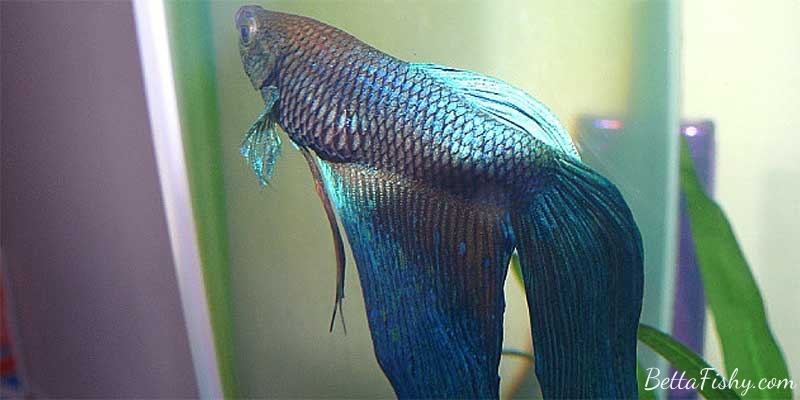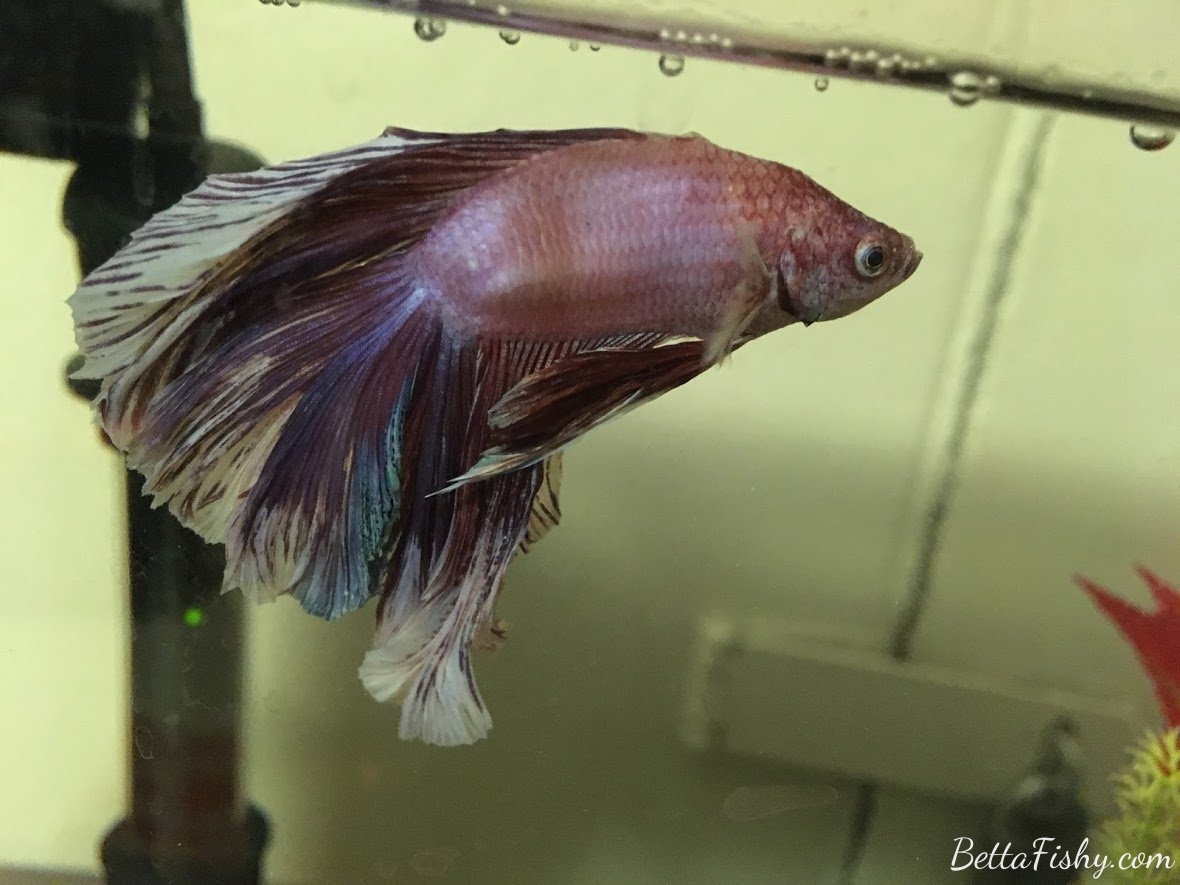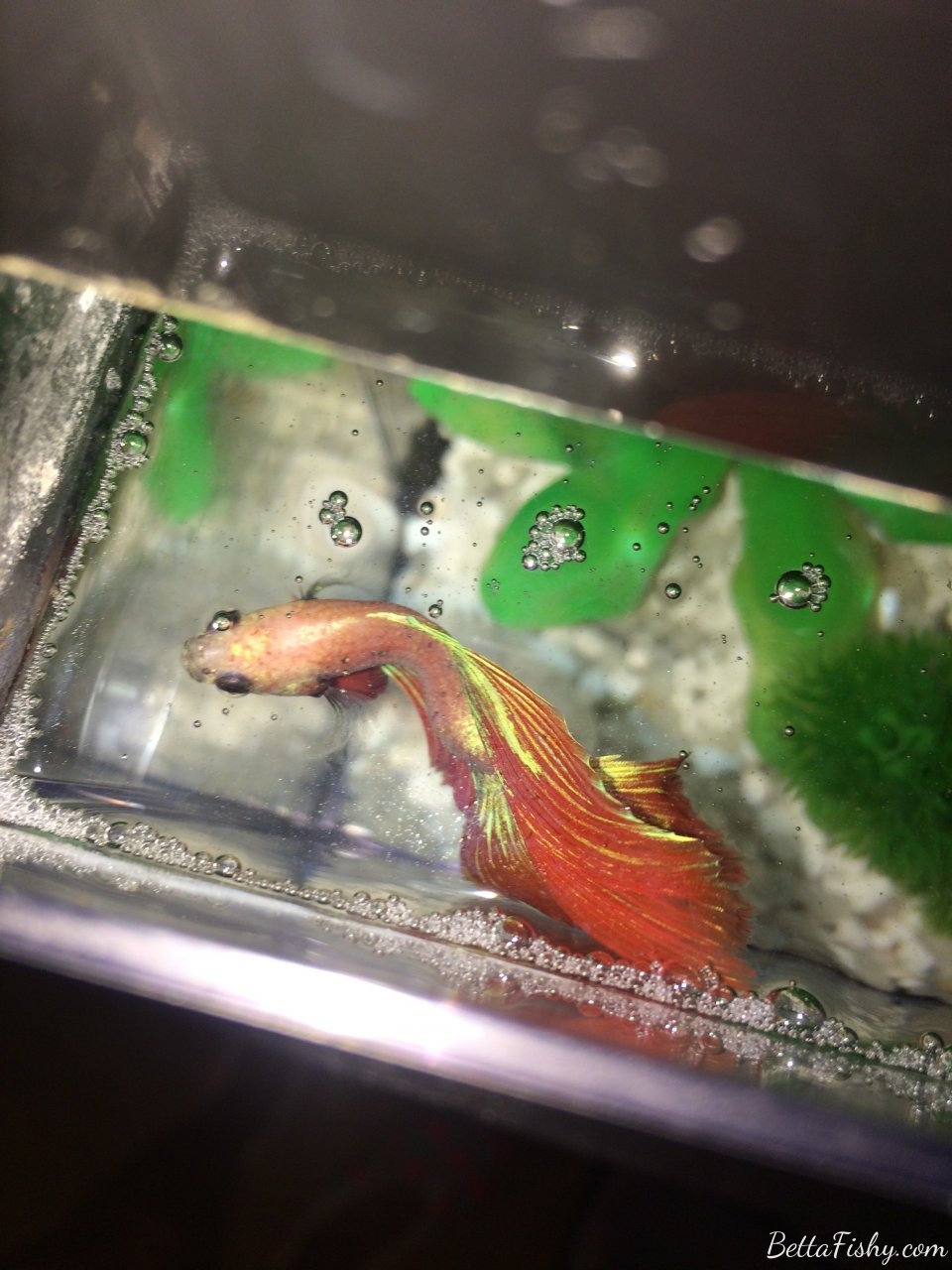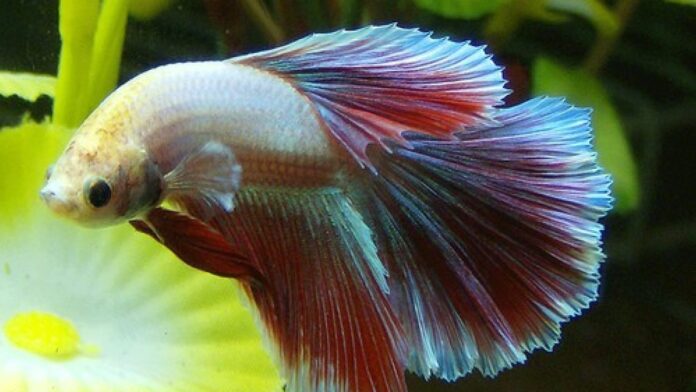Essential Guide: Understanding the Curved Spine Disorder in Betta Fish
Betta fish, also known as Siamese fighting fish, are a popular species in the aquarium hobby due to their vibrant colors and flowing fins. However, like any other living creature, they are prone to various health issues, one of which is betta fish curved spine. This condition, characterized by an abnormal curvature of the spine, can significantly impact a betta fish’s quality of life. As responsible pet owners, it is essential to understand the symptoms, causes, treatment options, and preventive measures for curved spine in betta fish.
Betta fish curved spine signs

Observing your betta fish’s behavior and physical appearance is crucial for early detection of curved spine. Here are some signs and symptoms that may indicate this condition:
Abnormal Swimming Behavior
A betta fish with a curved spine may exhibit erratic or abnormal swimming patterns, such as difficulty maintaining balance, swimming in circles, or struggling to swim upright. This behavior is often a result of the curved spine of betta fish, which affects the fish’s ability to move and swim properly.
Deformed Body Shape
The most visible sign of curved spine is a noticeable curvature of the fish’s body. Betta fish’s curved body can range from a slight bend to a severe deformity that significantly affects the fish’s mobility. You may notice that your betta fish’s body appears twisted or bent, making it difficult for them to swim and move around comfortably.
Lethargy and Reduced Activity
A betta fish with a curved spine may exhibit decreased activity levels and spend more time resting at the bottom of the tank. This is because the abnormal curvature of the spine can cause discomfort and pain, leading to reduced energy levels and lethargy.
To further aid in recognizing spinal curvature in betta fish, here is a table summarizing the common symptoms:
| Symptoms | Description |
|---|---|
| Abnormal Swimming Behavior | Difficulty maintaining balance, swimming in circles, or struggling to swim upright. |
| Deformed Body Shape | Noticeable curvature of the fish’s body, ranging from a slight bend to a severe deformity. |
| Lethargy and Reduced Activity | Decreased activity levels and spending more time resting at the bottom of the tank. |
Possible Causes of Betta Fish Spine Curving

There are several possible causes of curved spine in betta fish, including genetic factors, poor water quality, and physical injuries. Let’s take a closer look at each of these potential causes:
Genetic Factors
Some betta fish may be genetically predisposed to developing spinal deformities. This is especially true for fish that have been bred for specific traits, such as long fins or vibrant colors. These selective breeding practices can result in weakened spines, making them more susceptible to developing curved spines.
Poor Water Quality
Water quality plays a crucial role in a betta fish’s overall health and well-being. Poor water conditions, such as high levels of ammonia and nitrite, can cause stress and weaken a betta fish’s immune system. This, in turn, can make them more vulnerable to developing spinal deformities.
Impact on Betta’s Spine Health
Physical injuries, such as being dropped or squeezed, can also lead to spinal deformities in betta fish. These injuries can cause damage to the spine, resulting in an abnormal curvature. It is essential to handle your betta fish with care and avoid any rough handling that could potentially harm their delicate spines.
To summarize the possible causes of bent spine in betta fish, here is a list:
- Genetic factors
- Poor water quality
- Physical injuries
Treatment Options for Curved Spine Betta

If you suspect that your betta fish has a curved spine, it is crucial to seek proper treatment to improve their quality of life. Here are some treatment options for betta fish with spinal deformities:
Betta Curved Spine Treatment
Unfortunately, there is no cure for curved spine in betta fish. However, with proper care and treatment, the condition can be managed, and the fish’s quality of life can be improved. One option is to provide your betta fish with a comfortable and spacious tank that allows them to move around without putting too much strain on their spine.
Providing a Proper Diet for Rehabilitation
A well-balanced and nutritious diet is essential for betta fish with curved spines. A diet rich in protein and essential vitamins and minerals can help strengthen their muscles and support their overall health. It is also recommended to feed them smaller meals throughout the day instead of one large meal to prevent overeating and weight gain, which can put additional strain on their spine.
Water Quality Management Tips for Healing Curved Spines
Maintaining optimal water quality is crucial for treating and preventing curved spines in betta fish. Regular water changes and proper filtration can help keep ammonia and nitrite levels in check, reducing the risk of stress and weakened immune systems. It is also essential to monitor the water temperature and ensure it remains within the ideal range for betta fish (around 78-80°F).
To summarize the treatment options for betta fish with curved spines, here is a table:
| Treatment Options | Description |
|---|---|
| Treating Bent Spine in Bettas | Providing a comfortable and spacious tank for the fish to move around without straining their spine. |
| Providing a Proper Diet for Rehabilitation | Feeding a well-balanced and nutritious diet rich in protein, vitamins, and minerals. |
| Water Quality Management Tips for Healing Curved Spines | Maintaining optimal water quality through regular water changes and proper filtration. |
Preventing Betta Scoliosis: Tips for Keeping Your Pets Healthy and Happy
Prevention is always better than cure, and this holds true for curved spine in betta fish as well. Here are some tips to help you keep your pets healthy and prevent spinal deformities:
- Provide a spacious tank with plenty of room for your betta fish to swim and move around without straining their spine.
- Maintain optimal water quality by performing regular water changes and using a reliable filtration system.
- Avoid overfeeding your betta fish and provide them with a balanced and nutritious diet.
- Handle your betta fish with care and avoid any rough handling that could potentially harm their delicate spines.
- Consider the genetic history of your betta fish when purchasing them. Avoid buying fish from breeders who prioritize physical traits over the fish’s overall health.
Conclusion: Ensuring the Well-being of Your Beloved Betta Fish with Early Detection and Proper Care
In conclusion, Betta scoliosis is a common health issue that can significantly impact their quality of life. As responsible pet owners, it is essential to understand the symptoms, causes, treatment options, and preventive measures for this condition. By observing your betta fish’s behavior and providing them with proper care and a suitable environment, you can ensure their well-being and happiness. Remember that early detection and therapy are critical for betta bent spine management. With the above tips and information, BettaFishy hopes you can give your beloved betta fish the best chance at a healthy and happy life.


